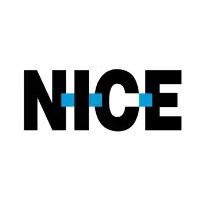During my tenure working in a call center during college, I learned to play Hearts, had several eating contests (never won), spent weeks getting a radio station to play a song, and did a lot of homework. Suffice it to say, working the evening shift wasn't very busy and we were at least a tad overstaffed. Granted, our average answer time was off the charts and hold times were nonexistent. And, because we created a fun work environment as a team, attrition was quite low.
While allowing your agents to have a pie eating contest on company time (at their desks) may not be a traditional means of agent retention, managing your workforce is becoming much more of a science. It's a long-held truth that personnel is the biggest cost in a contact center (as high as 70-80%) and training new employees carries a huge cost (as high as $5,000 per employee) so it makes sense that you would want to hang onto your high-performing agents. And along that same vein, many of the strategies that leading companies are using to manage the workforce seem very common sense at face value, but actually implementing them can require breaking down years of assumptions.
An amazing example of this is CLEARLINK. The company was founded on the premise of setting their sales-oriented contact center apart from the "norm" in the industry. As a result, the company builds its WFM policies around its culture of embracing, uplifting and empowering its employees (a directive that "comes from the top"). For example, CLEARLINK allows employees to take unlimited unpaid time off, and defines "full-time" at 30 hours (and thus, eligible for benefits). The company is growing by leaps and bounds, so, while they are quickly adding staff to meet demand, the tenured employees are still there, excelling at their jobs. The WFM leadership is working hard to maintain a culture of accountability, not fear, where the highest performers are rewarded and their methods are emulated.
CLEARLINK has based its philosophies around its overall company culture, and culture seems to be a huge driver behind WFM. That has also been true for Young Living, a company that has embraced a shift in the culture in order to motivate agents to actually want to be on the phones. By leveraging contact center data to show performance, and rewarding high performing employees, the company is seeing benefits to the agents, customers and company.
You can hear representatives from CLEARLINK and Young Living talk about their contact center strategies at the Salt Lake City stop on the Problem Solved Tour on May 17. You can learn more and register for this free event here.




